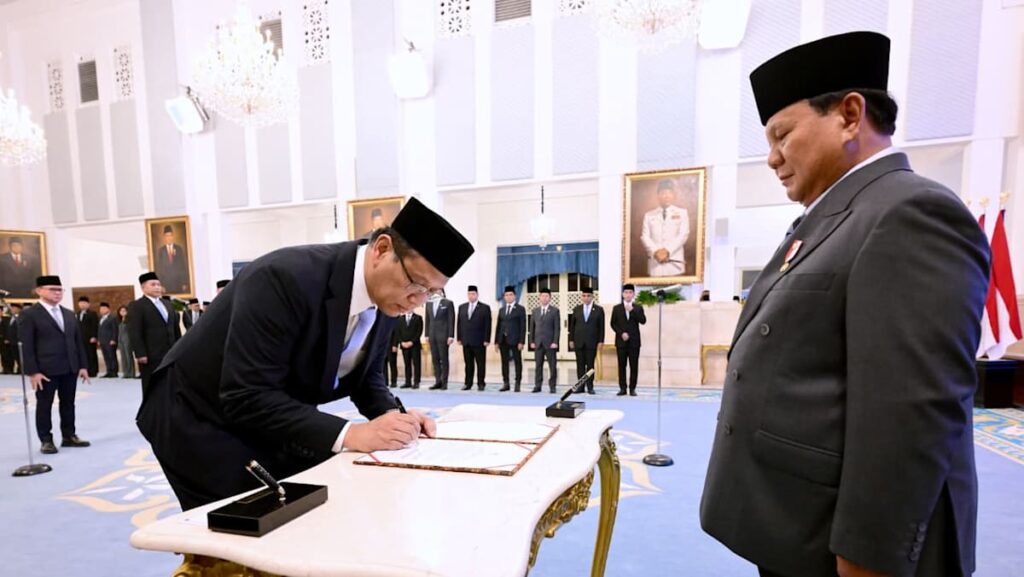PRABOWO’S LEGACY AT STAKE
The former general has long sought to lead Indonesia. His time finally came last year when he won the presidential election and formed a big-tent coalition government with a promise to transform Indonesia.
His campaign promised free meals for children, higher spending on defence, building infrastructure, attracting foreign investments and growing exports. All this while still retaining fiscal prudence. The logic went that if the economy could grow by as much as 8 per cent annually, Indonesians would feel prosperity in their pockets and Mr Prabowo would be a national hero.
Ambition and reality have clashed within the first year of his administration. In the annual budget announced last month, the government said it expects the economy to grow by 5.4 per cent in 2026. The government will also raise new sources of revenue to fund growing expenditure. With the external economic environment uncertain, Indonesia will have to rely more on its own resources to realise Mr Prabowo’s ambitions.
The groundbreaking free meals for 83 million children to reduce malnutrition and stunting will cost more than US$21 billion annually. Many applauded the intent but questioned how Indonesia will fund it without sacrificing fiscal stability. Yet it is off the ground, partly thanks to Ms Sri Mulyani who cut spending and raised revenue to assure financial markets that the programme could be funded without causing a fiscal crisis.
However, her actions planted the seeds of discontent. As she took a scalpel to government spending and raised new taxes, ordinary Indonesians began to grumble. And when Indonesian lawmakers chose to give themselves generous raises and allowances, the discontent crossed into protests.
Mr Prabowo sees himself as a leader of ordinary Indonesians. Yet his political instincts failed him when he needed them most.
Read the full article here

